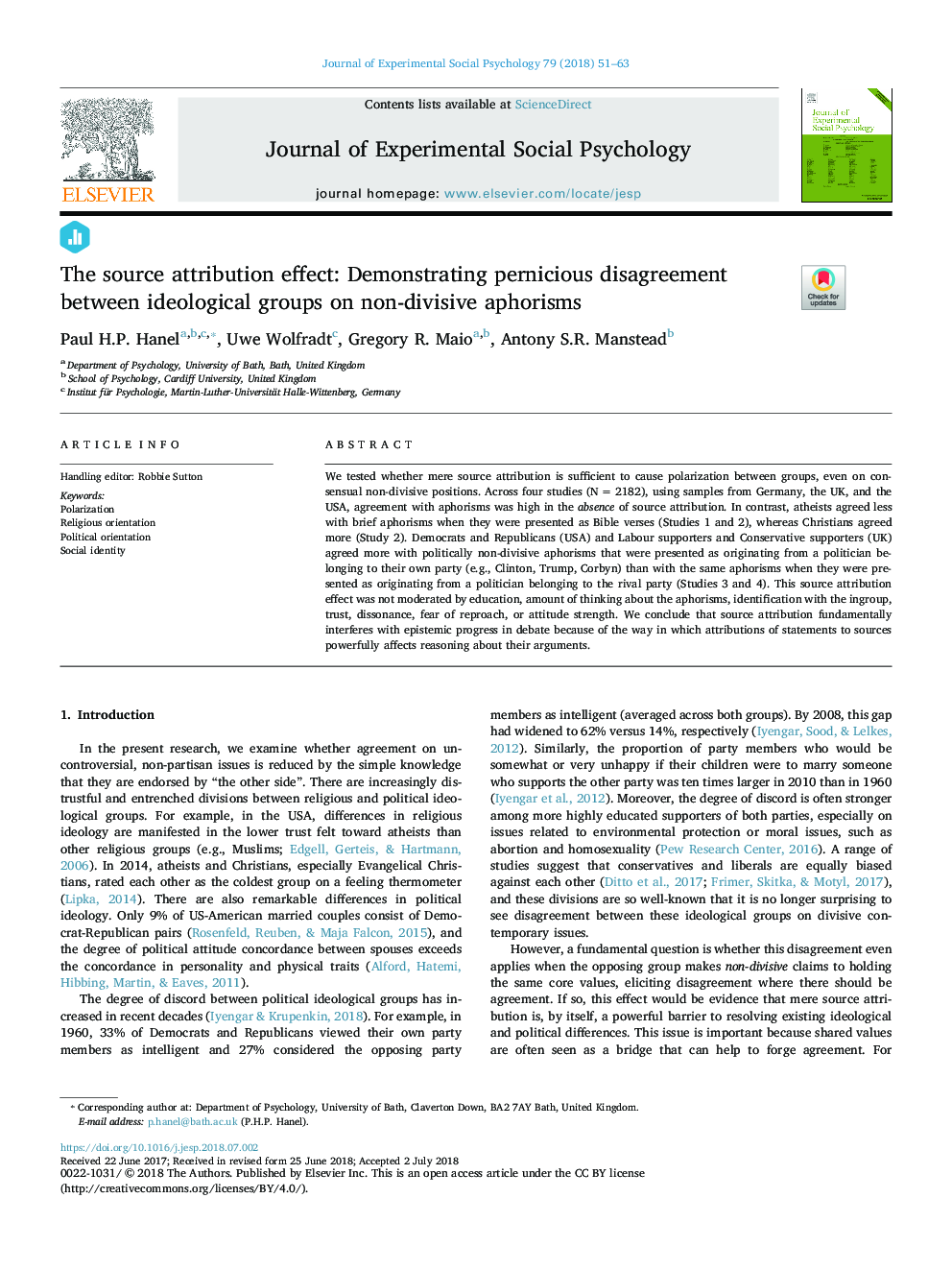| کد مقاله | کد نشریه | سال انتشار | مقاله انگلیسی | نسخه تمام متن |
|---|---|---|---|---|
| 7323896 | 1475844 | 2018 | 13 صفحه PDF | دانلود رایگان |
عنوان انگلیسی مقاله ISI
The source attribution effect: Demonstrating pernicious disagreement between ideological groups on non-divisive aphorisms
ترجمه فارسی عنوان
تأثیر منبع: نشان دادن اختلاف نظرهای غلط بین گروه های ایدئولوژیک بر فریب های غیر فکری
دانلود مقاله + سفارش ترجمه
دانلود مقاله ISI انگلیسی
رایگان برای ایرانیان
کلمات کلیدی
قطبش، جهت گیری مذهبی، جهت گیری سیاسی، هویت اجتماعی،
موضوعات مرتبط
علوم زیستی و بیوفناوری
علم عصب شناسی
علوم اعصاب رفتاری
چکیده انگلیسی
We tested whether mere source attribution is sufficient to cause polarization between groups, even on consensual non-divisive positions. Across four studies (Nâ¯=â¯2182), using samples from Germany, the UK, and the USA, agreement with aphorisms was high in the absence of source attribution. In contrast, atheists agreed less with brief aphorisms when they were presented as Bible verses (Studies 1 and 2), whereas Christians agreed more (Study 2). Democrats and Republicans (USA) and Labour supporters and Conservative supporters (UK) agreed more with politically non-divisive aphorisms that were presented as originating from a politician belonging to their own party (e.g., Clinton, Trump, Corbyn) than with the same aphorisms when they were presented as originating from a politician belonging to the rival party (Studies 3 and 4). This source attribution effect was not moderated by education, amount of thinking about the aphorisms, identification with the ingroup, trust, dissonance, fear of reproach, or attitude strength. We conclude that source attribution fundamentally interferes with epistemic progress in debate because of the way in which attributions of statements to sources powerfully affects reasoning about their arguments.
ناشر
Database: Elsevier - ScienceDirect (ساینس دایرکت)
Journal: Journal of Experimental Social Psychology - Volume 79, November 2018, Pages 51-63
Journal: Journal of Experimental Social Psychology - Volume 79, November 2018, Pages 51-63
نویسندگان
Paul H.P. Hanel, Uwe Wolfradt, Gregory R. Maio, Antony S.R. Manstead,
